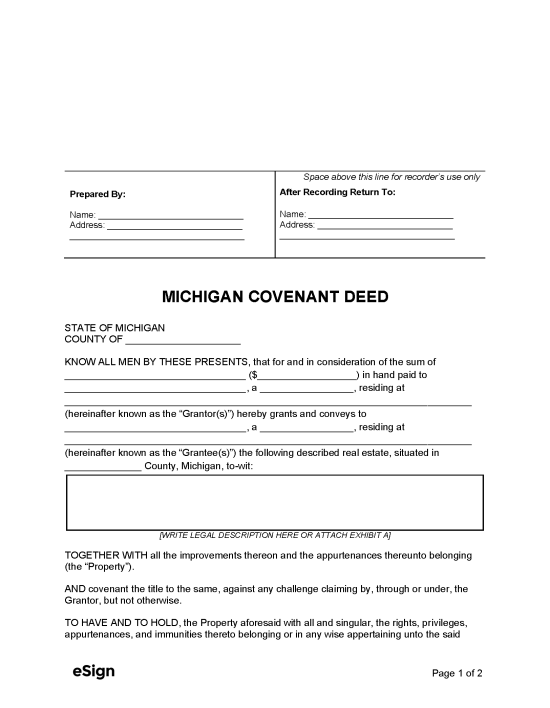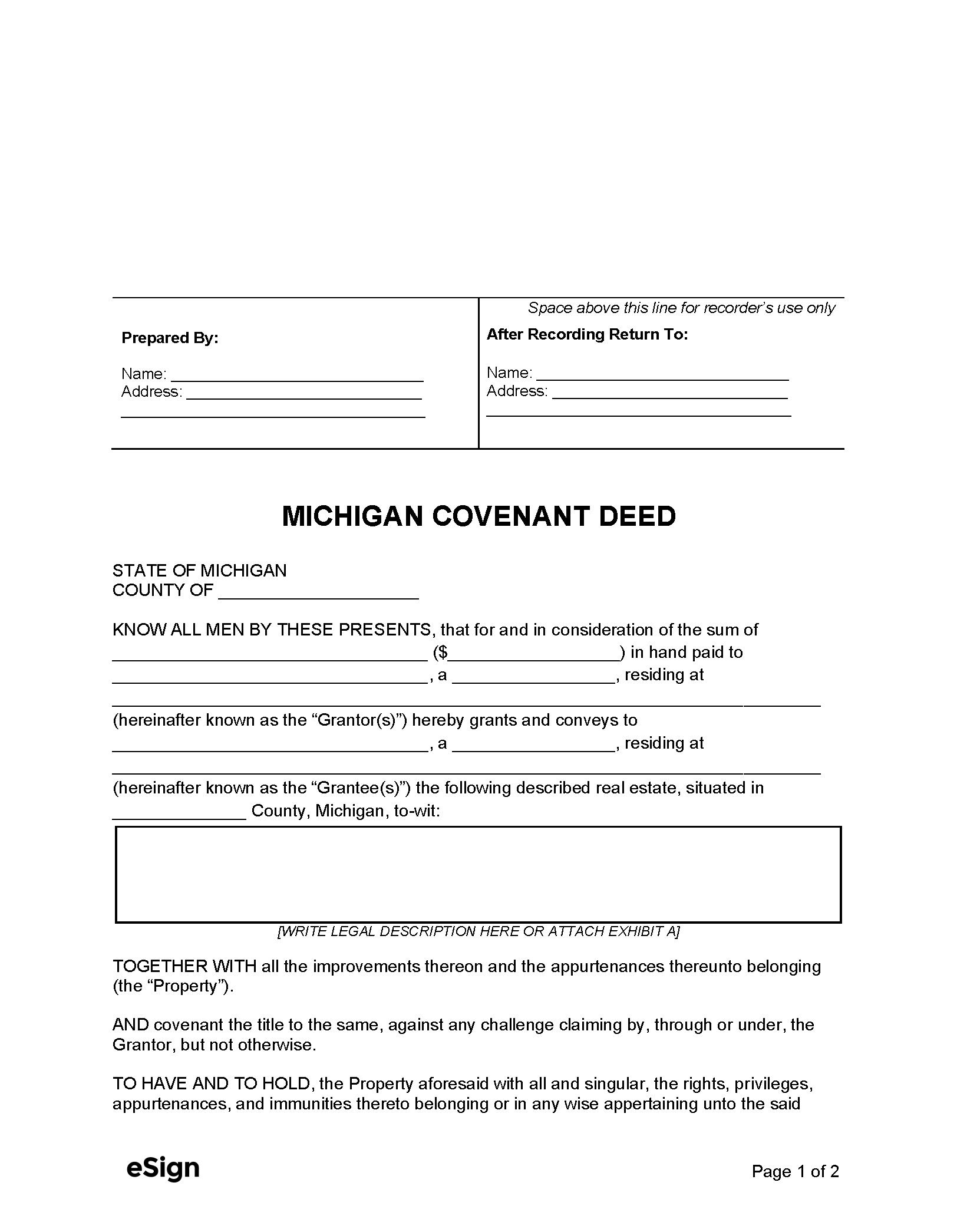Recording Requirements
- Grantor’s signature must notarized.[1]
- Deed must be printed on white paper between 8.5″x11″ and 8.5″x14″.[2]
- Font must be 10pts or larger and black.
- Margins should be 2.5″ on top of first page and 0.5″ on every other side and page.
Deeds are recorded at the Registry of Deeds in the county where the property is located. The filing fee is $30 (as of this writing).[3]
Covenant Deed (Preview)
Additional Forms
Addendum to Deed for Unplatted Land – If the land in question is unplatted (not formally subdivided), the deed needs to contain certain language.[4] This addendum satisfies this requirement.

